Are dental implants worth it?
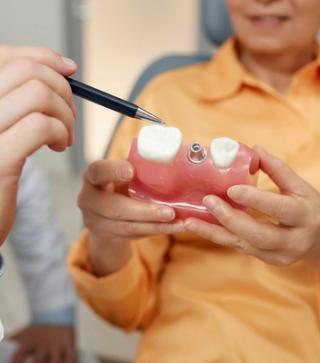
Dental implants have become a leading solution for replacing missing teeth, offering a natural look and long-lasting results. But are dental implants worth it?
This guide explores the procedure, costs, healing time, and key benefits to help you determine whether implants are the right choice for you.
How long do dental implants last? Understanding what they are
A dental implant is a titanium post that is surgically placed into the jawbone to replace the root of a missing tooth, providing a stable foundation for artificial teeth. Once the implant integrates with the bone, a crown is attached, creating a durable and natural-looking tooth replacement.
Benefits of dental implants
Dental implants offer a wide range of benefits for individuals with missing teeth. Some of the most significant advantages include:
- Improved appearance: Dental implants are designed to look and feel like natural teeth, allowing individuals to regain their confidence and smile. The custom-made crowns blend seamlessly with your existing teeth, providing a natural and aesthetically pleasing result.
- Enhanced chewing and speaking ability: Unlike dentures, dental implants are securely anchored in the jawbone, allowing individuals to eat and speak with ease. This stability ensures that you can enjoy your favorite foods and communicate clearly without worrying about slippage.
- Increased confidence: Dental implants can greatly improve an individual’s self-esteem and confidence, allowing them to feel more comfortable in social situations. Knowing that your teeth look and function like natural teeth can make a significant difference in your overall quality of life.
- Long-term solution: Dental implants are a long-term solution for missing teeth, with some implants lasting up to 20 years or more with proper care. This durability makes them a cost-effective option in the long run, as they often do not require frequent replacements.
- Improved oral health: Dental implants can help to prevent bone loss and gum recession, promoting overall oral health. By stimulating the jawbone, implants maintain bone health and prevent the deterioration that often accompanies missing teeth.
How do dental implants work?
Dental implants work by mimicking the structure of natural teeth. The implant acts as a root, stimulating the jawbone and preventing bone loss, which commonly occurs when a tooth is missing.
Unlike dentures, implants are fixed in place, providing stability and comfort. The dental implant process involves several stages, from initial consultation to final restoration, ensuring a stable and long-lasting solution.
The dental implant surgery procedure
The dental implant procedure involves multiple stages, typically completed over several months:
Initial consultation: A dentist assesses your oral health, bone density, and overall suitability for implants.
Surgical placement: The titanium implant is placed into the jawbone under local anesthesia.
Healing period: Over several months, the implant integrates with the bone through a process called osseointegration.
Abutment placement: Once healed, a small connector (abutment) is attached to the implant.
Final restoration: A custom-made crown is placed on top, completing the tooth replacement.
What to expect after the dental implant procedure?
After the dental implant procedure, individuals can expect some swelling, bruising, and discomfort. However, these symptoms are typically mild and can be managed with over-the-counter pain medication.
It’s essential to follow the dentist’s instructions for post-operative care to ensure proper healing and minimize the risk of complications.
Some common things to expect after the dental implant procedure include:
- Swelling and bruising: These symptoms are usually mild and can be managed with ice packs and pain medication. Applying ice to the affected area can help reduce swelling and provide relief.
- Pain and discomfort: Some individuals may experience pain and discomfort after the procedure, but this can be managed with pain medication. Your dentist will likely recommend specific medications to help manage any discomfort.
- Bleeding and oozing: Some bleeding and oozing may occur after the procedure, but this is usually minimal and can be controlled with gauze. It’s important to follow your dentist’s instructions on how to manage any bleeding.
- Soft foods: Individuals may need to eat soft foods for a few days after the procedure to allow the implant site to heal. Foods like yogurt, mashed potatoes, and smoothies are good options during the initial healing period.
Dental implant cost in Australia
The dental implant costs in Australia vary based on the complexity of the case, materials used, and clinic location. Factors such as the type of implant, materials used, and the complexity of the implant placement can significantly influence the overall cost. On average:
- Single dental implant: $3,000–$6,500
- Full arch implants (All-on-4): $20,000–$30,000
While implants are a higher upfront investment compared to dentures or bridges, they offer superior longevity and functionality, making them a cost-effective long-term solution.
Dental implants pros and cons
Pros:
Long-lasting, often a lifetime solution
Prevents bone loss and maintains facial structure
Feels and functions like a natural tooth
No need for adhesives like with dentures
Preserves surrounding teeth, unlike dental bridges
Cons:
Higher initial cost compared to other tooth replacements
Requires surgery and a longer dental implant process compared to other tooth replacement options
Not suitable for all patients, particularly those with severe bone loss or certain medical conditions
Alternatives to dental implants
While dental implants are a popular and effective solution for missing teeth, they may not be suitable for everyone. Some alternatives to dental implants include:
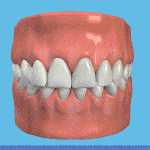
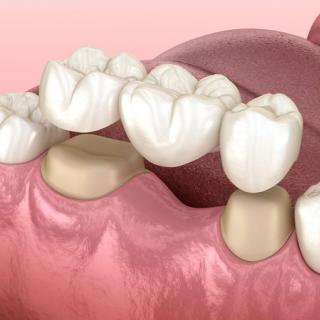
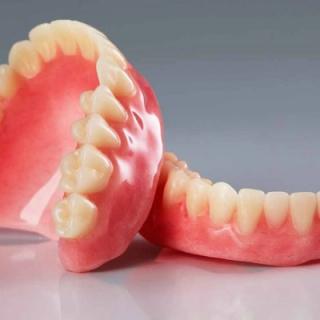
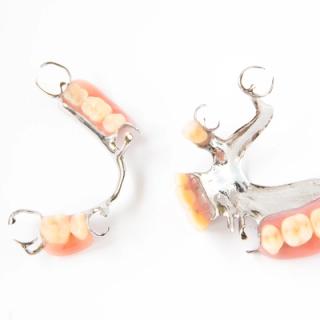
It’s essential to consult with a dentist to determine the best course of treatment for missing teeth. Each option has its own set of advantages and considerations, and a professional can help you make an informed decision based on your specific needs and circumstances.
Are dental implants a good option for seniors?
Dental implants for seniors are an excellent choice for maintaining oral function and preventing bone loss.
Age is not a limiting factor as long as the patient has adequate bone density and good overall health. For seniors missing multiple teeth, full arch implants (All-on-4) can provide a stable and permanent solution.
Dental implant procedures can be tailored to meet the specific needs of seniors, ensuring a successful outcome.
Are dental implants worth it?
Dental implants are widely considered the gold standard for tooth replacement. They offer unmatched durability, functionality, and aesthetic appeal.
While the initial cost and healing time may be higher than other options, their long-term benefits make them a worthwhile investment for many patients.
If you’re considering dental implants, consult with a professional to determine the best solution for your needs. Book an appointment today to start your journey toward a healthier, more confident smile.

